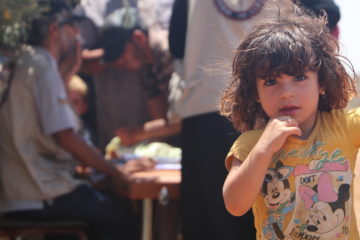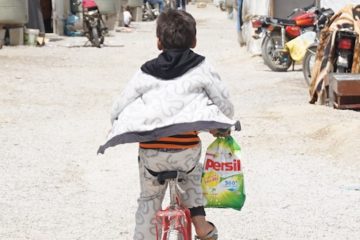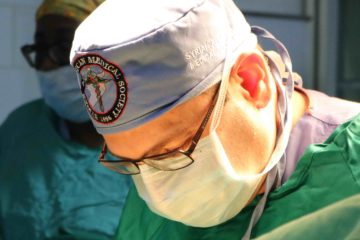July 1, 2014
The horrors experienced by the Syrian people on a daily basis are unimaginable.
Even for an adult, dealing with the level of psychological trauma that results from escaping barrel bomb attacks and surviving endless mortar shelling, would be incredibly difficult. Yet far too often, the ones bearing witness to these atrocities are young children. Many have lost one or both parents, a sibling, or a friend. In many cases, these children have witnessed the death of their loved ones and are left with no explanation. It is imperative to measure and treat the physiological trauma these incidents have on children. To meet this challenge, SAMS established and is operating psychosocial programs in Jordan and Syria, to give affected Syrian children the opportunity to take part in activities to cope with and move past these experiences. Here are examples of activities provided by SAMS:
- Trust building exercises
- Breathing and relaxation techniques
- Story telling activities built around themes taken from traumatic patient experiences
- Drawing activities encouraging children to draw their experiences
SAMS is currently engaged in research concerning international standards and best practices for psychosocial programs. SAMS is committed to being a main provider of psychosocial services to Syrians. Our team in Jordan is consistently attending training sessions to develop their skills andmaximizetheir ability to expand existing services.
The Syrian crisis is intensifying with each passing day, and the solution has never been more elusive. We must all ask ourselves what more can be done to give innocent Syrian children the means to cope with and process the unspeakable trauma they have had to endure. Children are the most vulnerable to the effects of perpetual violence, and therefore must be afforded the most protection. They hold the greatest stake in the future of Syria and will be indispensable in rebuilding their country once the conflict has ended. For that reason, SAMS is committed to expanding its psychosocial programming to heal the invisible scars borne by Syria’s children.




